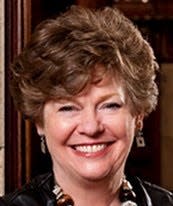Make New College an even better school - not a totally different one

As both a member of the Charter Class of New College of Florida (1967) and the former president of another liberal arts college, I have followed with dismay the recent unfounded attacks on my alma mater waged in the purported cause of its improvement.
Like so many other alums, I am indebted to New College for my personal and professional development. Due to great faculty teaching and mentoring, I earned a Fulbright to Spain and a full fellowship to Columbia University for a doctorate in European Intellectual History.
And because I was taught by my education at New College to challenge orthodoxies, I went on to become a change-oriented academic leader at Chatham University in Pittsburgh, Pennsylvania, for 24 years.

Throughout my career I have remained close to New College, and I am now again on its Foundation Board.
My primary credential for the comments that follow are my many years at Chatham overseeing the “turnaround” of a troubled liberal arts college which had lost its competitive leadership position during the 1960s. We reversed declining enrollments (in fact, we quadrupled enrollment over time), dealt with deferred maintenance, initially inadequate budgets and so on.
Does that sound familiar?
So, yes, I know what dealing with a challenged institution means. And I know that dealing with a challenged institution does not mean what it appears to mean at New College at this moment.
The wrong way to face challenges
It does not mean a carrying out a hasty turnover of leadership at the behest of new Board of Trustees members who are unacquainted with the individuals or the culture of the institution.
It does not mean looking to remove – or simply removing – contractual security for a talented, already effective president who has been in office for less than two years.
It does not mean ousting a board chair whose greatest sin seems to be – under the advice of counsel – deciding that prayer should not open a board meeting at a public institution.
It does not mean the wholesale removal of tenure from tenured faculty, which will be sure to drive away or embitter many talented members of the faculty.
It does not mean creating conflict among administration, board and faculty.
It does not mean creating all the negative publicity, which is already leading students to rescind their acceptances of admissions offers.
It does not mean declaring that a new core curriculum is in order and overturning academic due process, which enables faculty members to play their legitimate role as experts in designing and approving curriculum.
A difficult time
This is a difficult time to effect institutional transformation in higher education overall, and this is particularly true for small liberal arts colleges which are struggling everywhere.
To effect such a change requires, among other things, having knowledgeable, responsible and supportive boards of trustees. It also requires adequate funding: The state program under which New College used to receive at least matching funds for capital fundraising seems to have disappeared, leading to the deferred maintenance problems that exist.
Chris Rufo, one of the New College's newly appointed trustees, at least acknowledged that the bigger, “fancy glass and steel” institutions do get more physical plant support – and consequently have an "edge" in attractiveness. The state of the physical plant mightily influences students and their parents, and it is a big problem for New College right now.
I would suggest that it is much more urgent for New College to address this fundamental problem than attacking the alleged problem of” left-wing ideology” and taking other politically right-wing steps.
It is critical to remember and celebrate what New College has accomplished, and also why I am proud to call it my alma mater: Despite being embattled and underfunded, it is still the No. 5-ranked public liberal arts college in the nation.
I suggest that adequately funding this overachieving college – because that is what New College is in reality – would immediately solve most of its enrollment problems and allow an exceptional institution to thrive and grow.
Esther Barazzone, Ph.D is president emerita of Chatham University in Pittsburgh, Pennsylvania. She is a Class of 1967 graduate of New College of Florida.
This article originally appeared on Sarasota Herald-Tribune: Board members should improve New College, not destroy its legacy

